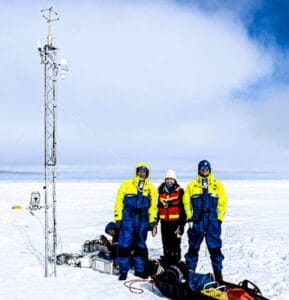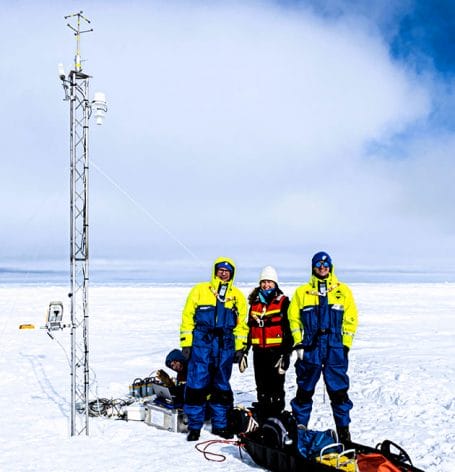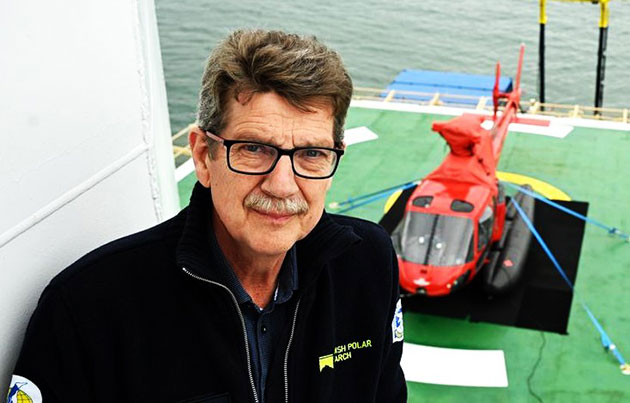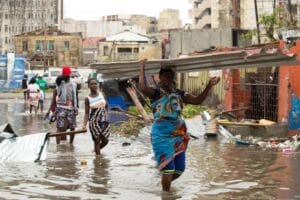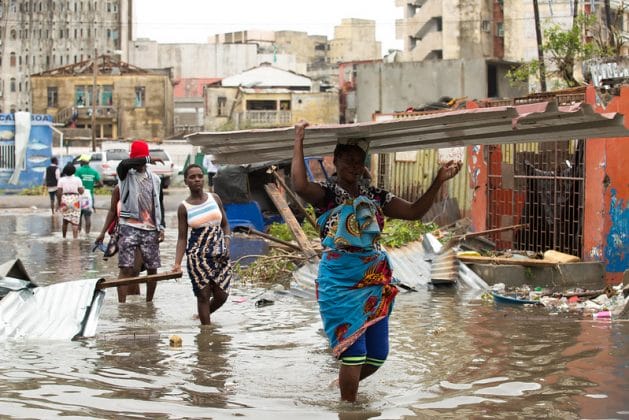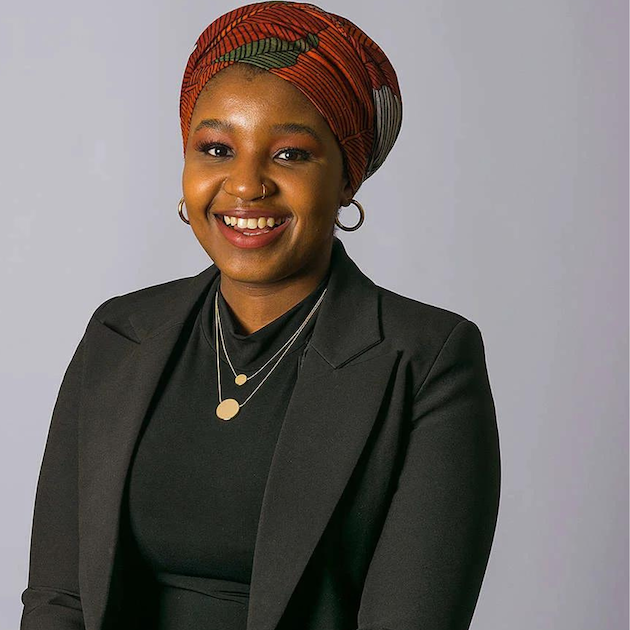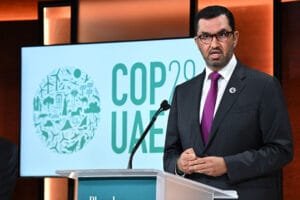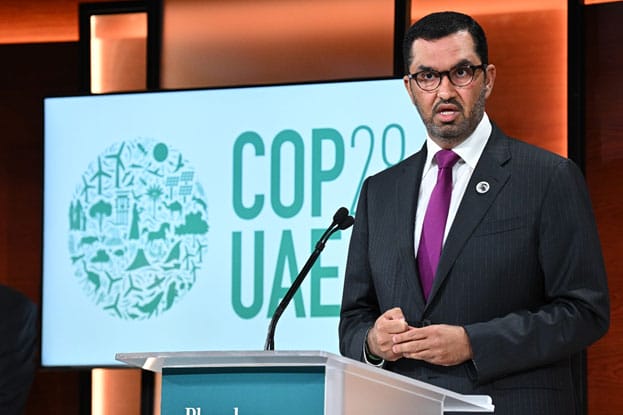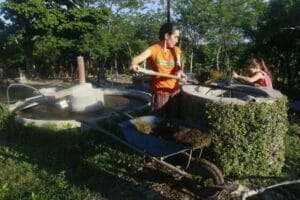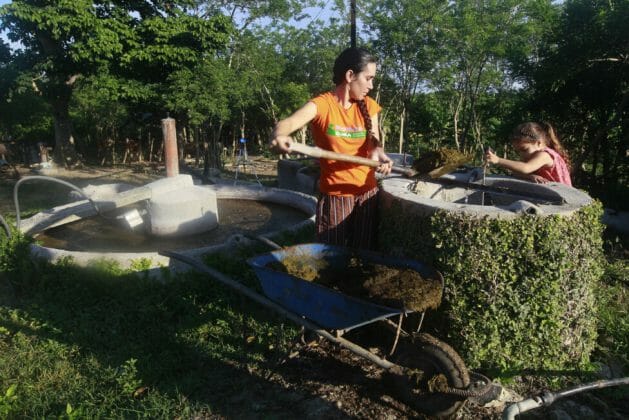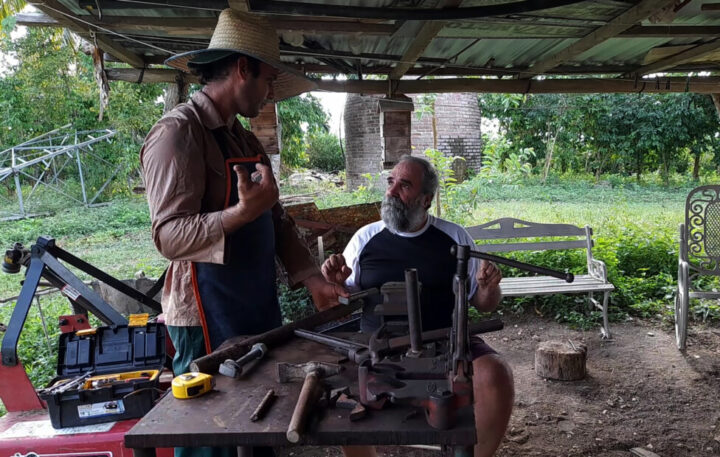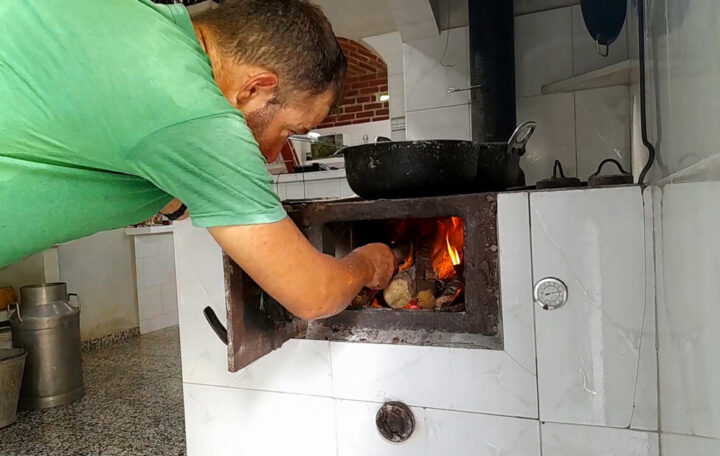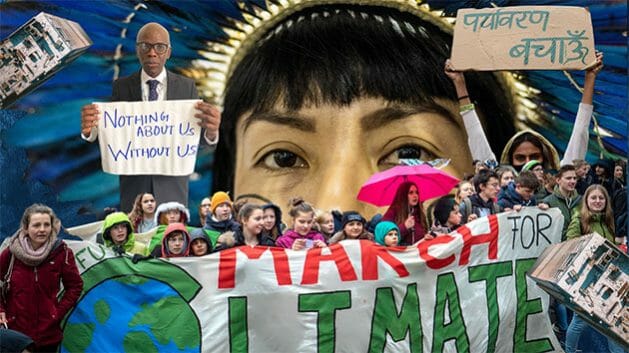
Civil Society, Climate Action, Climate Change, Climate Change Finance, Conferences, COP28, Development & Aid, Editors’ Choice, Energy, Environment, Featured, Global, Global Governance, Headlines, Integration and Development Brazilian-style, IPS UN: Inside the Glasshouse, Latin America & the Caribbean, Projects, Regional Categories, Sustainable Development Goals, TerraViva United Nations
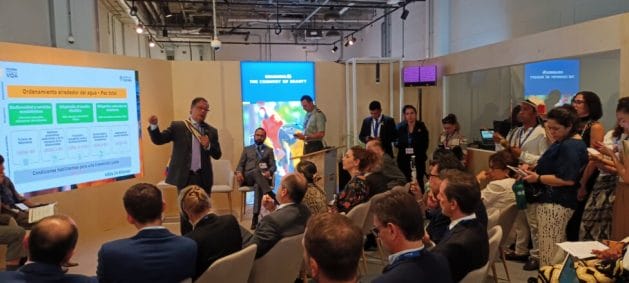
Colombian President Gustavo Petro presented his environmental plans at COP28 in Dubai and added his country to the small group of nations that support the negotiation of a binding treaty to prevent the proliferation of fossil fuels, despite his country being an oil producer. CREDIT: Emilio Godoy / IPS
– One of the most heated debates at the annual climate summit coming to a conclusion in this United Arab Emirates city revolved around the phrasing of the final declaration, regarding the “phase-out” or “phase-down” of fossil fuels within a given time frame.
This is an essential calculation on the decommissioning of refineries, pipelines, power plants and other infrastructure that, in some cases, have been in operation for years, as discussed at the 28th Conference of the Parties (COP28) to the United Nations Framework Convention on Climate Change (UNFCCC).
Experts who talked to IPS at the summit agreed on the magnitude of the bill, which for some Latin American nations could be unaffordable.
“Financial support will be needed. There must be a differentiated approach, differentiated timing, and developed countries must come up with the resources.” — Fernanda Carvalho
Fernanda Carvalho of Brazil, global leader for Energy and Climate Policy at the non-governmental World Wildlife Fund (WWF), referred to the amount without specifying a figure.
“Financial support will be needed. There must be a differentiated approach, differentiated timing, and developed countries must come up with the resources,” the expert, who was present at COP28, held at Expo City on the outskirts of Dubai, told IPS.
COP28 engaged in an acrimonious debate between phase-out and phase-down, with a definite date, of oil, gas and coal, which has already anticipated a disappointing end in Dubai, that in line with the tradition at these summits extended its negotiations one more day, to conclude on Wednesday, Dec. 13.
The “phase-down” concept has been in the climate-energy jargon for years, but it really took off at the 2021 COP26 in the Scottish city of Glasgow, whose Climate Pact alludes to the reduction of coal still being produced and the elimination of inefficient fossil fuel subsidies.
Throughout the climate summits since 1995, developing countries have insisted on differentiated measures for them, in accordance with their own situation, the need for financing from developed nations and the transfer of technology, especially energy alternatives.
Enrique Maurtúa of Argentina, senior diplomacy advisor to the Independent Global Stocktake (iGST) – an umbrella data and advocacy initiative – said they hoped for a political signal to determine regulations or market measures regarding a phase-down or phase-out.
“If a target date is not set, there is no signal. If you set a phase-out for 2050, that is a pathway for the transition. With a deadline, the market can react. And then each country must evaluate its specific context,” the expert told IPS in the COP28 Green Zone, which hosted civil society organizations at the summit.
Available scientific knowledge indicates that the majority of proven hydrocarbon reserves must remain unextracted by 2030 to keep the planetary temperature rise below 2 degrees Celsius, the threshold agreed in the 2015 Paris Climate Change Agreement to avoid massive disasters.

On Sunday, Dec. 10 the non-governmental Climate Action Network (CAN) delivered at COP28 a dishonorable mention to the United States for its role in Israel’s carnage in Gaza, in the traditional Fossil of the Day award for “doing the most to achieve the least” in terms of progress on climate change at the summits. CREDIT: Emilio Godoy / IPS
Failed attempts
In the Latin American region there are unsuccessful precedents of fossil fuel phase-outs.
In 2007, the then president of Ecuador, Rafael Correa (2007-2017), launched the Yasuní-Ishpingo Tambococha Tiputini initiative, which sought the care of the Yasuní National Park in the Ecuadorian Amazon rainforest, in exchange for funds from governments, foundations, companies and individuals of about 3.6 billion dollars by 2024 to leave the oil in the ground.
The aim was to leave 846 million barrels of oil untouched underground. But a special fund created by Ecuador and the United Nations Environment Fund only raised 13 million dollars, according to the Ecuadorian government. So Correa decided to cancel the initiative in 2013, at a time when renewable energies had not yet really taken off.
In a referendum held in August, Ecuadorians decided to halt oil extraction in a block in Yasuní that would provide 57,000 barrels per day in 2022 – the same result sought by Correa, but without foreign funds.
The result of the referendum is to be implemented within a year, although the position of the government of the current president, banana tycoon Daniel Noboa, who took office on Nov. 23, is still unclear.
Meanwhile, in Colombia, President Gustavo Petro has put the brakes on new oil and coal exploration contracts, a promise from his 2022 election campaign.
In addition, the president announced on Dec. 2 in Dubai that his country was joining nine other nations that are promoting the formal initiation of the negotiation of a Fossil Fuel Non-Proliferation Treaty.
Colombia will thus become the first Latin American nation and the largest oil and coal producer to join the initiative that first emerged in 2015 when several Pacific Island leaders and NGOs raised the urgent need for an international mechanism to phase out fossil fuels.
For the undertaking of a just energy transition to cleaner fuels, Petro estimates an initial bill of 14 billion dollars, to come from governments of the developed North, multilateral organizations and international funds.
The latest summit of hope for the climate kicked off on Nov. 30 in this Arab city under the slogan “Unite. Act. Deliver” – the least successful in the history of COPs since the first one, held in Berlin in 1995.
The hopes included commitments and voluntary declarations on renewable energy and energy efficiency; agriculture, food and climate; health and climate; climate finance; refrigeration; and just transitions with a gender focus.
In addition, there were financial pledges of some 86 billion dollars, without specifying whether it is all new money, to be allocated to these issues.
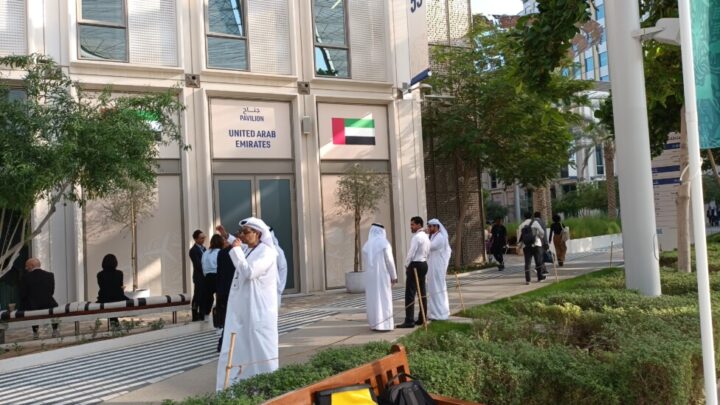
Like many countries, the host of COP28, the United Arab Emirates, has had a pavilion in the so-called Green Zone, which hosts non-governmental organizations, companies and other institutions. The Emirati government bet a lot on the climate summit to deliver results, but without directly targeting the fossil fuels on which its economy depends. CREDIT: Emilio Godoy / IPS
Billions
Given the production and exploration plans of the main hydrocarbon producing countries in the region, the magnitude of the challenge in the medium and long term is enormous.
In October, Brazil, the largest economy in the region and the 11th largest in the world, extracted 3.543 billion barrels of oil and 152 million cubic meters (m3) of gas per day.
This represented approximately two percent of the domestic economy that month.
Mexico, the region’s second largest economy, extracted 1.64 million barrels and 4.971 billion m3 of gas per day in October, equivalent to 52 million dollars in revenues.
Meanwhile, Colombia produced 780,487 barrels of oil in the first eight months of 2023 and 1,568 cubic feet per day of gas, equivalent to 12 percent of public revenues.
“We have to think about decarbonization measures. We want Latin America to be a clean energy powerhouse,” said Carvalho.
As of September, Brazil’s state-owned oil giant Petrobras was working on obtaining 9.571 billion barrels of oil equivalent, according to the Global Oil & Gas Exit List produced by the German non-governmental organization Urgewald.
This represents an excess of 94 percent above the limit set by the 2015 Paris Agreement to keep global warming below two degrees Celsius.
Meanwhile, Mexico’s state-owned oil company Pemex is producing 1.444 billion barrels of oil equivalent, 56 percent above the threshold set by the Paris Agreement.
Finally, the public company Ecopetrol, mostly owned by the Colombian state, is working to obtain 447 million barrels, 98 percent above the Paris Agreement limit, according to Urgewald.
In addition, the cost of action against the climate crisis is far from affordable for any Latin American nation.
For example, Mexico estimated that the implementation of 35 measures, including in the power, gas and oil generation sector, would cost 137 billion dollars in 2030, but the benefits would total 295 billion dollars.
But Maurtúa says the budget question is only relative. “There is a lot of public money with which many things can be done,” complemented by international resources, he argued.

